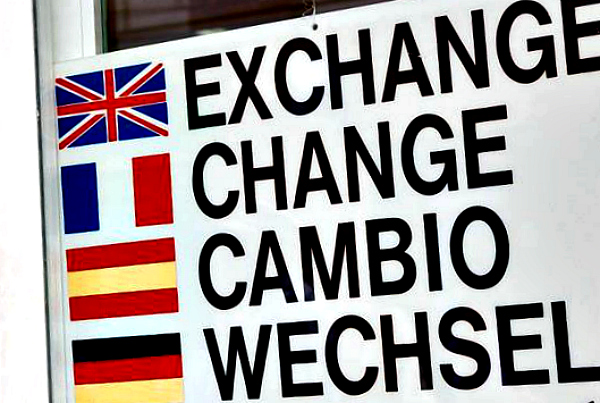Whenever you need to exchange your currency for foreign notes, there’s usually a charge involved. This is our guide to reducing those costs and getting the best deal.

WHERE TO BUY
There are two big choices here, on-line or in-store? We’ve done it both ways over the years, but these days we prefer to buy in-advance online from one of the major currency retailers. You can compare the best rate on one of the comparison websites before you buy and they’re usually much better than the instore rates. There’s one big thing to remember though – if the online company goes out of business, you’re likely to lose your money! This happened in the UK in 2010. You need to bear in mind the risk factor as there’s no easy way to be sure the company you’re buying from is in good financial help. If you’re in doubt or don’t want to take the risk, then shop around on the high street. You’ll find that rates do vary substantially.
Another thing to bear in mind is whether you will want to return any currency when you come back. If you do, look out for buyback offers at the same rate you bought at so you don’t pay the fees twice. We tend to keep our currency for the next holiday unless it’s a currency we don’t think we’ll use again.
WHEN TO BUY
There’s no easy way to tell if a currency is going to go up or down before your holiday, but we sometimes buy when the rate is good compared to historical rates. There’s a risk with this, in that it might get better before you go on holiday, but we’ve always been ok. If you buy on line, the rates are sometimes better the more in advance you buy. Again though, you risk leaving your money in a company’s bank account rather than your own.
CARD OR CASH
One of the big growth areas in currency exchange in recent years has been the idea of cards that you load with currency before you go on your holiday. These are a great idea, and we’d rather use them than travellers cheques nowadays. However, we tend to do it a different way. We buy a smaller amount of currency then we used to and use a credit card or debit card with no additional loading for purchases abroad. In this way, you can pay for larger items on card and smaller things by cash. You do need to budget for the bill you will have when you come home, but often the rate on the card is better than the rate we bought our currency at.
Lots of cards add a percentage charge for transactions abroad and these should be avoided. Look for the cards that say they only charge the exchange rate with no loading on top.
MORE ON CURRENCY EXCHANGE
UK Travel Money Advice & Comparison – Money Saving Expert

Hiya! I’m at work browsing free-city-guides.com from my new iphone! Just wanted to say I love reading all the tips on your website and look forward to all your posts! Carry on the excellent work!